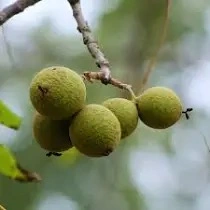Is Plantain a Weed or a Medicinal Marvel?
- Camille

- Sep 16, 2025
- 3 min read
Updated: Feb 7
Plantain is considered an essential herb for apothecaries due to its wide range of uses in both medicinal and traditional practices. The leaves of plantain are rich in vitamins A and C, contributing to immune support, while their high tannin content imparts astringent properties that may help reduce inflammation and combat infection.
Unlike the banana variety, these plantains are ubiquitous weeds that commonly grow in various environments. Individuals interested in harvesting plantain should avoid collecting specimens from areas treated with herbicides or pesticides, as well as from locations near roadsides due to potential contamination. Instead, wild harvesting is best conducted in pastures, parks, and public open spaces, ensuring proper permission is obtained where required.
The two most commonly used species are Plantago major and Plantago lanceolata, also known as Ribwort Plantain. Plantain can be prepared as tinctures, teas, salves, balms, or used fresh.


Benefits of ingesting plantain tincture, teas or fresh plants:
Plantain has anti-inflammatory properties that may serve as a preventative measure for some individuals with chronic urinary tract infections (UTIs) when consumed as tea or tincture.
Its compounds support lung health by reducing irritation and dryness and addressing thick mucus, moisturizing while also drying and toning the mucus lining. For lung or throat discomfort, a strong tea infusion made with plantain and mint leaves is sometimes recommended. Plantain is anti-inflammatory, antimicrobial, antihemorrhagic, and an expectorant This plantain tincture can help to relieve coughing and bronchitis.
Plantain acts as a vulnerary herb to help soothe and coat the digestive tract, and its anti-inflammatory qualities may assist in decreasing inflammation within the body.
Plantain tincture is well known for helping as a cleanser and blood purifier due to its ability to draw infection out.
Swishing the tincture in the mouth can help reduce dental abscesses and mouth sores.
Topical applications:
·
Plantain leaves are applied to help alleviate symptoms from stings or bug bites. Chewing the leavced on sore areas as needed.
Its drawing abilities and anti-inflammatory effects make it suitable for use on es and placing them on the affected area may reduce swelling and pain.
The plant may provide relief from itching associated with eczema, inflamed skin, or dermatitis.
Plantain contains vitamin K, which plays a role in collagen production and may aid in repairing minor skin damage.
Plantain can be used on blisters; chewed leaves can be plasplinters and slivers.


Tinctures are very strong herbal extracts made by infusing herbs in alcohol. Some tinctures are not recommended during pregnancy or lactation and may cause allergies. Tinctures are best taken under the tongue but due to their strong taste they also may be diluted in water or juice.
I infuse both plantain leaves in 100 proof alcohol at a 1/10 ratio. My plantain tincture can be taken orally or applied topically. When applying topically it does sting a bit, but it does the job!

Adult Dosage is15–30 drops of tincture, used 3 times daily for chronic situations. Always start a new tincture at the lowest dose and increase as needed.
For acute conditions, you want to take smaller and/or more frequent doses, such as 1/4 teaspoon every hour. Alcohol based herbal tinctures have a shelf life of about three years.





Comments